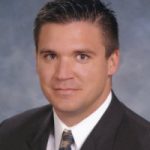
By Lindsay Street, Statehouse correspondent | An ideological divide is growing in South Carolina over whether the state should continue to provide its employees with a public pension — even though the legislature overhauled it just two years ago.
Labeled as “phase two” of possible pension reform, advocates are seeking to change the guaranteed, public-backed benefit to something more akin to a 401(k), that puts the liability on the back of individual state employees.
One in 10 people in South Carolina relies on a state-funded retirement plan that, despite 2017 legislative state fixes, continues to face huge problems. At the top of the list: the $25 billion long-term liability of the pension plan. Some say it is an unfunded mandate — a financial noose tightening around the state’s coffers. Why? Because it uses variable revenue sources, including market-based investments.

“It’s the biggest issue we’re facing and it will always be the biggest issue we face in our lifetimes,” state auditor Comptroller General Richard Eckstrom said.
In the last year, the state incurred $1.5 billion in losses from underperforming investments from the pension program that manages $32 billion in contributions, Eckstrom said. Some critics complain the state’s assumption of a 7.25 percent return on its investments is unrealistic.
South Carolina is part of a national trend of states failing to fund their pension plans adequately, according to multiple nationwide studies. In 2017, the state pension funds in a Pew Charitable Trust study cumulatively reported a $1.28 trillion funding gap.
Most officials around Columbia say legislation from 2017 largely fixed the problem — even some of the system’s biggest critics like Republican state Treasurer Curtis Loftis. But Eckstrom, who also is Republican, and a few GOP lawmakers disagree, saying the state needs to implement a hase two to avoid financial ruin and broken promises.
What ‘2017’ did for pensions
In 2017, legislators did three things: lowered fees for investment, increased the amount of money to fund the pension through an enhanced employer contribution (mostly the state, but the pension includes local governments, schools and other public agencies), and gave the state investment commission instructions for “better” investing, according to S.C. Sen. Vincent Sheheen, D-Kershaw.

In a Sept. 24 Senate Finance Retirement Systems subcommittee meeting, S.C. Retirement Investment Commission head Mike Hitchcock told lawmakers, including Sheheen: “You cannot underestimate the positive impact of (the 2017 pension) legislation.” He reiterated that same comment in written answers to questions submitted by Statehouse Report this week.
- Much of the overhaul was based on recommendations by the Funston Advisory Services Report. Read a 2018 report on how the state implemented those recommendations.
Public employers will put in 18 percent of their payroll into the pension system by 2022-2023 after increasing every year by one percent. Employees already contribute 9 percent, and no additional contributions are asked of them by the legislation.
“This problem took a long time to development and it takes time to be solved, and what we did in 2017 has already shown dramatic improvements,” Sheheen said. “2017 was a much much bigger deal than people understand. We basically made the pension fund stable and made it … where the outstanding unfunded liabilities should be paid off.”
That could happen as soon as 22 years under current projections, Sheheen said.
“The 2017 Pension Reform Bill instituted changes that have stabilized the pension system and placed it on a path to fiscal health. Even though we are ahead of schedule, the unfunded liability is a problem that will take many more years to fully address and will require patience,” Hitchcock wrote Statehouse Report.
Eckstrom disagreed that pensions are fixed in the state.
“This retirement system continues to hemorrhage,” he said, adding the state paid $1.2 billion last year, but didn’t earn the projected 7.25 percent needed to fully fund retirees, which caused it to incur a $1.5 billion loss — meaning millions of promised dollars were not earned.
‘Phase two’ being pushed now
Hitchcock said the state needs to remain vigilant but that the retirement system does not need any further intervention.
“We do not need to do anything more legislatively to make the system solvent,” Hitchcock wrote. “Just a few years in, the reforms are already yielding substantial progress. However, there is no doubt that the additional contributions the bill requires place a substantial burden on our state agencies and local governments … (but) we need to hold fast to the funding policy.”

A longtime critic of the state’s pension system, Loftis, said he’s satisfied with the 2017 changes.
“The reforms of 2017 were good reforms. There’s still a little bit of refinement needed but I have high hopes that the management in place now is going to do well,” Loftis told Statehouse Report.
Eckstrom remains skeptical about the financial future.
“We’ve pretty well demonstrated we can’t run this kind of plan. I can’t imagine what more proof anyone needs to look at the miserable results we have to show for how incompetent we have been,” he said.
Still trying to change the model
Some Republican lawmakers in the S.C. House and Senate are proposing altering the state’s retirement system to put investing responsibility on the individual. Eckstrom agreed with those models.
The current public pension system is a defined benefit plan, which is financial-planning speak for the employer taking investing responsibility and promising an end-result.
One of the alternatives floated is a public retirement plan based on defined contributions would operate more like a 401(k). The employer doesn’t buffer the investing risk, you select where your money is invested, and if the market flounders, so does your retirement savings.

Summerville Republican Sen. Sean Bennett introduced Senate Bill 167 in January, but the bill has stalled in the Finance Committee.
“The biggest reasons why we have to look at a ‘phase two’ is that the current system is just not sustainable,” Bennett said. The bill would “by default” put new employees under the 401(k)-type plan, but have an option to opt-into a public pension system that would be more stringent than the current system.
Bennett said the bill not only fixes the solvency issue long term, but it would also allow for “wealth-building” among rural, lower-income public workers. A pension plan cannot be inherited, but money from a defined contribution plan can, he said. It would also be able to transfer to an IRA or other investment plan should a worker return to the private workforce.
Bluffton Republican Rep. Bill Herbkersman said he’s looking at introducing similar legislation in 2020, but it would “hybridize” the two plans, meaning for part of your service would be under a defined contribution plan, and part of your service would be under a defined benefit plan.
“2017 was to stop the bleeding and now we are actually going to dig out of the hole,” he said.
Both lawmakers said they have been working with libertarian think tank Reason Foundation and moderate nonprofit Pew Charitable Trusts on the issue.

Sheheen said he is not opposed to further changes, but cautioned against “rash decisions.”
“I have sensed less urgency (around the Statehouse) because the current pension is coming into balance but I think there is still a debate. I’m open to considering changes for new hires but one of my touchstones is, I’m not going to leave a career policeman with a retirement that won’t support him,” he said. “I need somebody to show me they will have enough money to retire. That’s just the moral obligation of the state.”
- Have a comment? Send to: feedback@statehousereport.com
















 We Can Do Better, South Carolina!
We Can Do Better, South Carolina!
Pingback: Pension Reform Newsletter: Pension Consolidation, Court Ruling on Benefit Cuts, and Divestment - The Latest Breaking News Alerts
The State Legislature has an obligation is make the state pension system able to pay the millions of state workers who paid in and depend on this for their future income. Their failure to do this should be a reason to remove them from office when you vote.
Stop pretending you have done enough and use money that is available now to make the system solvent for years to come.
laura … let me know your hometown if you want this published in the weekly edition,. thanks